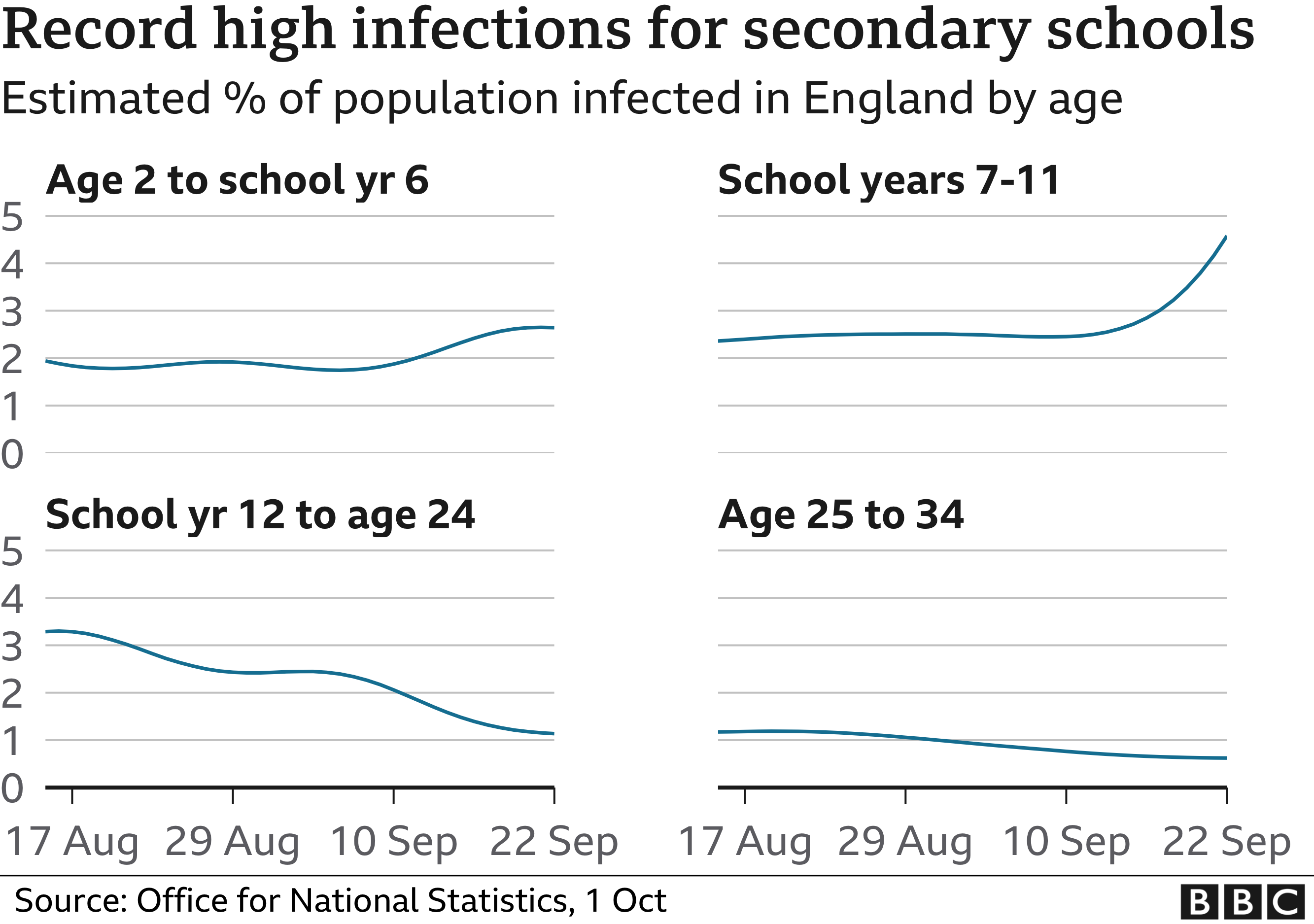Children’s risk from the virus is very low, and serious illness is rare.
A single vaccine dose is now being offered to all 12 to 17-year-olds in schools across the UK. That followed a decision by the UK’s four chief medical officers that a Covid vaccine for this age group would help keep children in school and benefit the poorest families.
Previously, only teenagers with health conditions which put them at increased risk of being seriously ill with Covid were offered two doses, as well as children living in the same house as people who are very vulnerable to the virus. The ONS data covers the week up to 25 September, and estimates a steep rise in infections in children aged 11-15 over the last few weeks, with nearly 5% now testing positive - up from 2.8% the week before.
Infections in younger primary-age children have been increasing, but much less sharply, with 2.6% testing positive.
Infections in young adults have now decreased to around 1% affected, and in older adult groups infection levels remain even lower.
Prof Kevin McConway, emeritus professor of applied statistics, at The Open University, said the infection rates in 11 to 15-year-olds were “extraordinarily high”, adding that the fall in infections in young adults, who have now been vaccinated in large numbers, was “pleasing”.
Around 1.2% of the UK population - or one in 80 people - is likely to be infected, the ONS says, which is little changed from the previous week.
No real surprise in “back-to-school” infections but the current rate of one in 80 people infected (UK) takes us back to 18th December 2020 with 2 massive surges, with spikes in January (81,000 per day) and July (60,000 per day) thereafter.
However, back in January, deaths peaked at an appalling 1,200 per day and since then the number has been successfully reduced to a nonetheless distressing 150 a day.
With winter on the way, numbers of recorded cases of just one type of respiratory virus running at nearly 40,000 a day do not portend well for the coming months.


